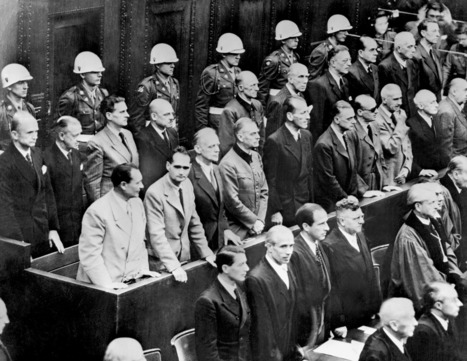Marcel Ophuls’s The Memory of Justice never suggests that Auschwitz and the My Lai massacre, or French torture prisons in Algiers, are equivalent, let alone that the Vietnam War was a criminal enterprise on the same level as the Holocaust. Nor does Ophuls doubt that the judgment on Göring and his gang at Nuremberg was justified. Ophuls himself was a refugee from the Nazis, forced to leave Germany in 1933, and to flee again when France was invaded in 1940. Instead he tries, dispassionately and sometimes with touches of sardonic humor, to complicate the problem of moral judgment.
What makes human beings who are normally unexceptional commit atrocities under abnormal circumstances? What if such crimes are committed by our fellow citizens in the name of our own country? How does our commitment to justice appear today in the light of the judgments at Nuremberg? Will the memory of justice, as Plato assumed, make us strive to do better?
Photo : Nazi leaders accused of war crimes during World War II standing to hear the verdict in their trial, Nuremburg, October 2, 1946. Albert Speer is third from right in the back row of defendants; Karl Dönitz is at the far left of the same row.
Via Thomas-Penette Michel



 Your new post is loading...
Your new post is loading...







